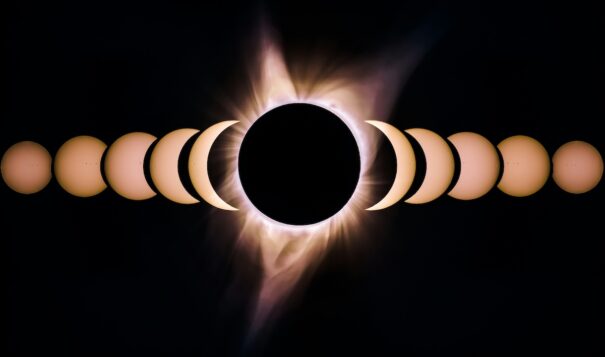Opinion Advocates for ideas and draws conclusions based on the author/producer’s interpretation of facts and data.
A Native Perspective On The April 8 Solar Eclipse
 Roger Amos, author and Neshoba County native, writes about his Indigenous ancestors’ solar eclipse tales as the April 8, 2024, total solar eclipse event approaches. Photo by Bryan Goff on Unsplash
Roger Amos, author and Neshoba County native, writes about his Indigenous ancestors’ solar eclipse tales as the April 8, 2024, total solar eclipse event approaches. Photo by Bryan Goff on Unsplash
Turtle Island, as most Indigenous peoples of North America call it, will witness another solar eclipse on April 8, 2024, of more totality than the previous annular one of October 2023.
While many Americans are finalizing their plans to be in the path of totality that will cross a narrow section of the country, Indigenous people will also observe and reflect in their own ways the traditional teachings of this natural phenomenon.
I wish I were fortunate to have grown up with tales or stories specifically regarding the solar eclipse, but those teachings, among others, were lost to history. As missionaries worked at the turn of the century to convert my ancestors to Christianity and so few of our customs, such as songs and dances, survived into the 21st Century, and I’m glad to have grown up with those traditions passed on to me.
The Black Squirrel That Devoured the Sun
History tells me that my ancestors, and those of some neighboring tribes, had similar beliefs about the eclipse. The Choctaw believed that a large black squirrel (fani losa or fvni lusa) devoured the sun and brought darkness upon the land. My ancestors would scream, shout, throw rocks and create other noise to scare the squirrel away, and the sun would eventually reappear. For the Cherokee people, the animal that ate the sun was a frog.
While Mississippi is set to see only 80% of darkness for the April 8 solar event, our long-distance cousins, the Choctaw Nation of Oklahoma, will witness totality in their corner of southeast Oklahoma. They have activities planned in observance of the eclipse.
During the annular eclipse last year that swept the western half of the United States, the Navajo Nation (Dine’) posted on social media that due to traditional beliefs, they shut down popular tourist attractions such as Monument Valley and the Four Corners Monument. The eclipse is seen as the death of the sun and undergoing a rebirth. The Dine’ will observe solemnly indoors with the curtains drawn, and doing no physical activity; only to pause for reflection during this transition.
Perhaps it is centuries of passed-down oral tradition that teaches how dangerous it is to look at the eclipse as it can damage the eyes. I understand why they would want to retreat indoors since they live in the desert, unlike us Choctaws here in the Mississippi forests, where there are plenty of trees to provide shade.
This solemn practice reminded me of my childhood with my grandmother in Neshoba County, Miss., whom I wrote about in my first column with the Mississippi Free Press four years ago. Grandma Amos made us children be still and quiet with all the electricity and TV turned off during a rainstorm, and I remember she would sit in her comfortable chair with her eyes closed while the thunder roared in the distance and the flashes of lightning lit the dim living room. I had always wondered if she had gone to sleep, but looking back on that practice, I believe she was praying for our safety during the storm.
While I was fortunate as a child to hear stories such as why the possum has a hairless tail, I’m glad that other stories such as the black squirrel devouring the sun and causing an eclipse have been recorded to be shared with the generations to come. On April 8, Choctaws in Mississippi, Louisiana and Oklahoma will unite and make a lot of noise to scare away Fani Losa and to bring back the sun that shines on all the lands we call home.

This MFP Voices essay does not necessarily represent the views of the Mississippi Free Press, its staff or board members. To submit an opinion for the MFP Voices section, send up to 1,200 words and sources fact-checking the included information to azia@mississippifreepress.org. We welcome a wide variety of viewpoints.
